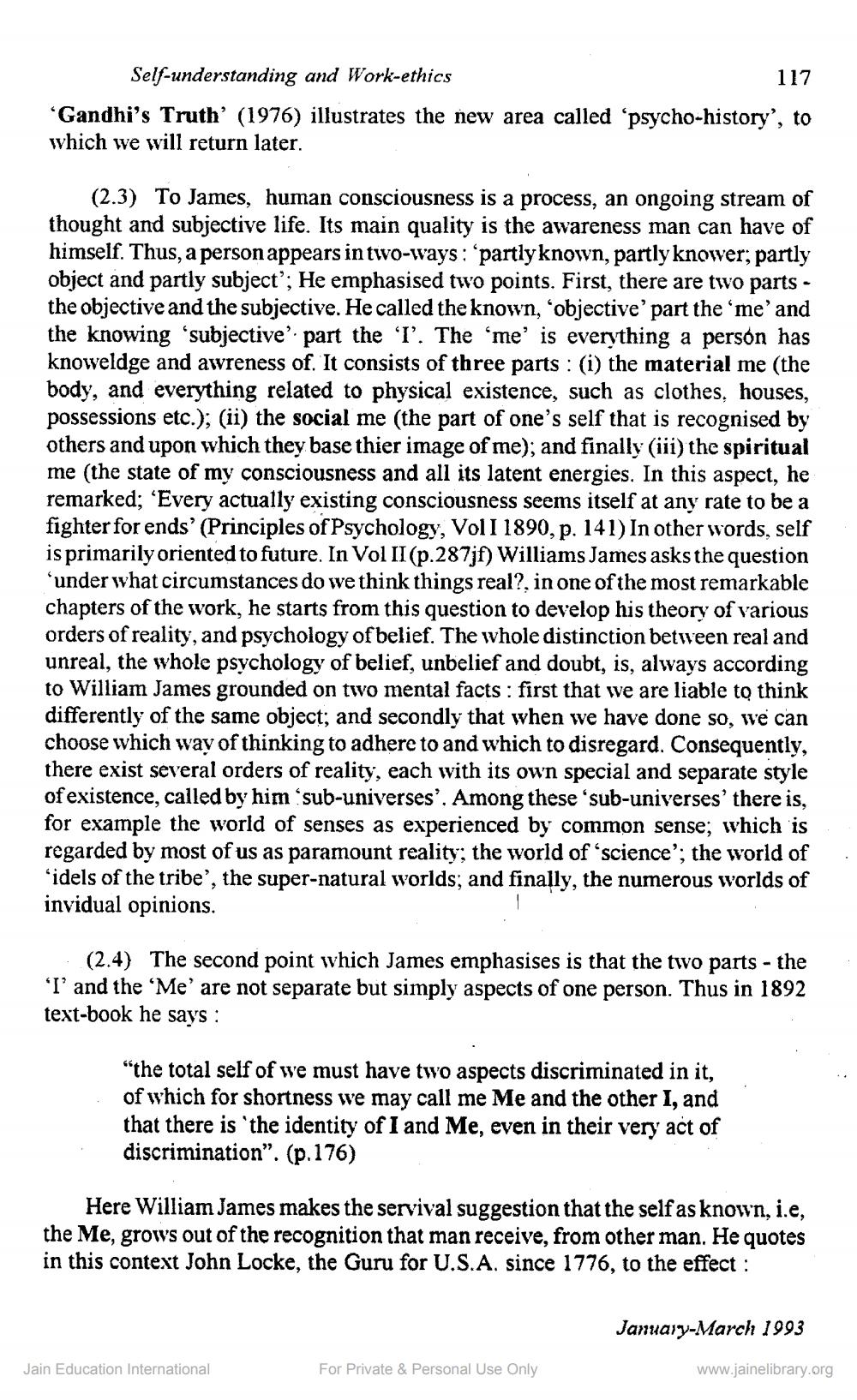________________
Self-understanding and Work-ethics
117
'Gandhi's Truth' (1976) illustrates the new area called 'psycho-history', to which we will return later.
(2.3) To James, human consciousness is a process, an ongoing stream of thought and subjective life. Its main quality is the awareness man can have of himself. Thus, a person appears in two-ways: 'partly known, partly knower; partly object and partly subject'; He emphasised two points. First, there are two parts the objective and the subjective. He called the known, 'objective' part the 'me' and the knowing 'subjective' part the 'I'. The 'me' is everything a person has knoweldge and awreness of. It consists of three parts: (i) the material me (the body, and everything related to physical existence, such as clothes, houses, possessions etc.); (ii) the social me (the part of one's self that is recognised by others and upon which they base thier image of me); and finally (iii) the spiritual me (the state of my consciousness and all its latent energies. In this aspect, he remarked; 'Every actually existing consciousness seems itself at any rate to be a fighter for ends' (Principles of Psychology, Vol I 1890, p. 141) In other words, self is primarily oriented to future. In Vol II (p.287jf) Williams James asks the question 'under what circumstances do we think things real?, in one of the most remarkable chapters of the work, he starts from this question to develop his theory of various orders of reality, and psychology of belief. The whole distinction between real and unreal, the whole psychology of belief, unbelief and doubt, is, always according to William James grounded on two mental facts: first that we are liable to think differently of the same object; and secondly that when we have done so, we can choose which way of thinking to adhere to and which to disregard. Consequently, there exist several orders of reality, each with its own special and separate style of existence, called by him sub-universes'. Among these 'sub-universes' there is, for example the world of senses as experienced by common sense; which is regarded by most of us as paramount reality; the world of 'science'; the world of 'idels of the tribe', the super-natural worlds; and finally, the numerous worlds of invidual opinions.
(2.4) The second point which James emphasises is that the two parts - the 'I' and the 'Me' are not separate but simply aspects of one person. Thus in 1892 text-book he says:
"the total self of we must have two aspects discriminated in it, of which for shortness we may call me Me and the other I, and that there is 'the identity of I and Me, even in their very act of discrimination". (p.176)
·
Here William James makes the servival suggestion that the self as known, i.e, the Me, grows out of the recognition that man receive, from other man. He quotes in this context John Locke, the Guru for U.S.A. since 1776, to the effect:
Jain Education International
For Private & Personal Use Only
January-March 1993 www.jainelibrary.org




